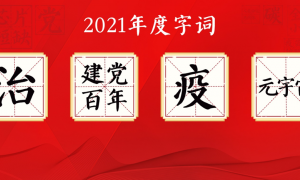BEIJING - Two of China's major telecommunications companies announced on Friday that they will substantially raise their broadband speeds and lower broadband costs over the next five years. The announcement came in the wake of last month's government-initiated probe into monopolistic practices.
China Telecom Corp Ltd and China Unicom (Hong Kong Ltd), the country's two main fixed-line operators, said they have sent applications to the National Development and Reform Commission (NDRC) to end the investigations into their broadband businesses.
The NDRC also confirmed that it had received the applications, which were sent on Nov 17, and said it is addressing them in accordance with the relevant laws.
On Nov 9, the NDRC, the country's top economic planner, said it was investigating the companies over suspected monopolistic practices in the broadband access business.
China Telecom said in a statement that its price management is faulty and that it "will trade fairly according to market rules ... and lower its fees to a proper degree".
The company added that it will also lower the unit price of public broadband usage by 35 percent in five years time.
China Unicom admitted that it needs to further manage its pricing system and will lower the cost for public access to the Internet through broadband, according to a statement.
The companies account for 90 percent of China's broadband business and have formed "a monopoly" in the market, according to an NDRC official, speaking on condition of anonymity.
Last month, Li Qing, deputy head of the NDRC's price supervision and anti-monopoly department, said the companies had not fully integrated their networks and, thus increased access costs and lowered Internet speeds.
She also noted that the companies were using their market dominance to practice price discrimination.
This is the first anti-monopoly case involving large State-owned enterprises since China implemented an anti-monopoly law in 2008.
Xiang Ligang, a telecom and communications observer, said the two telecom carriers are likely to reach a settlement with the NDRC, given their admissions about the pricing problems.
After the prices are changed, other broadband operators - those that previously bought bandwidth from China Telecom and China Unicom at high prices and then sold them on to individual customers - will benefit, he said.
China had 152.5 million broadband Internet users by the end of October, with 26.2 million added during the first 10 months of the year, according to data from the Ministry of Industry and Information Technology.
In early November, CCTV reported that the NDRC had been investigating alleged monopolistic policies in the broadband Internet market by China Telecom and China Unicom. If the allegations are proven, the companies could be fined 1 to 10 percent of their 2010 operating revenue, according to the broadcaster.
China Telecom fell 1.49 percent to HK$4.62 (59 cents) at the close of trading in Hong Kong on Friday, while China Unicom fell 1.08 percent to HK$16.54.







